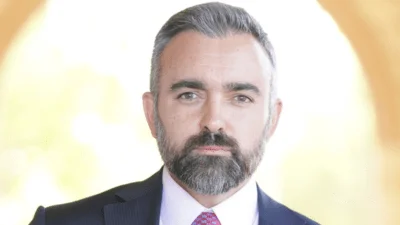When it became apparent in spring 2020 that the COVID-19 pandemic would force New Mexico businesses to lay off workers, the state Legislature acted to ensure that companies would not be penalized for doing so by forcing them to pay elevated unemployment insurance rates.
But when the bills came due this spring, they were far higher than before. The New Mexico Business Coalition then filed complaints with the state attorney general and the state auditor. Two days later, WorkForce Solutions secretary Bill McCamley resigned.
That wasn’t a coincidence, according to New Mexico Business Coalition President and Founder Carla Sonntag.

Carla J. Sonntag
| NMBC
“The timing of the secretary's departure, in light of our complaints to the state auditor and attorney general, is suspect. He resigned two days after the complaints were filed,” Sonntag told New Mexico Sun.
“The review prompted by our complaints uncovered the massive overpayments of approximately $250 million,” she said. “Part of our complaint identified fraudulent claims, and about half of the overpayments were attributed to fraud.”
McCamley, a former local politician and Democratic state legislator who ran for auditor but lost in a 2018 Democratic primary, served as secretary of the department for slightly more than two years.
On May 20, McCamley, in a series of Twitter posts, said he resigned because he perceived his safety and that of his family was in jeopardy because of the problems with how his department handled the deluge of unemployment claims. He said he plans to leave the state.
The unemployment rate is based on the number of employees laid off, but due to the dramatic economic downturn caused by the pandemic, most businesses were forced to shut down or reduce services, and workers were laid off or furloughed.
The New Mexico Legislature amended the Small Business Recovery Act of 2020, which provided loans for small businesses, to include a reprieve from drastically elevated unemployment insurance rates.
“The amendment to the Senate bill will remove the COVID-related layoffs and furloughs from businesses’ recorded experience,” Sonntag explained in a post on the NMBC website in June 2020. “This will adjust the UI formula rate calculation to 'hold employers harmless' for the massive layoffs they had no say in. It also freezes the reserve factor for a period of time. These two measures will provide huge relief to UI rates for over a year. This is a much needed win for struggling New Mexico businesses who faced potentially skyrocketing UI rates next year, and one less thing to worry about as they focus on recovering.”
At least, it was supposed to, but that wasn’t the case this spring. George Gundrey, owner of Tomasita’s in Albuquerque, told KOB4 in Mach that his unemployment rate jumped from $10,000 annually to $48,000. He said other businesses reported similar increases.
That’s when the New Mexico Business Coalition went back to work. It contacted state officials to let them know the 2020 law was not being observed by the Department of Workforce Solutions.
Sonntag said the department’s deputy secretary, who is now the acting secretary of the New Mexico Department of Workforce Solutions, immediately sent out notices to all employers who received notification of a rate increase that he would be conducting a rate review.
The department issued a statement on Monday, May 24, on the tax rate review and recalculation, which was conducted for all New Mexico employers under the provisions of the Small Business Recovery Act of 2020.
Revised notices were sent out last week informing employers if their rate increased, decreased, or was unchanged from the notices sent in November 2020.
“NMDWS recalculated the tax rate for over 50,000 contributory employers to omit benefit charges, employer wages, and contributions for the period of March 1, 2020, through June 30, 2020,” the release states. “As a result of the recalculation, roughly 9,000 employers had their tax rate for 2021 decrease when compared to the rate initially issued in November 2020. Roughly 2,000 employers received a tax rate increase and the remaining employers’ rates remained unchanged.”
The NMDWS extended the deadline for first quarterly payments to May 31. If employers already made that payment deemed too high, they will receive a credit on their account. They also can request a refund.
That can be done through their employer account in the Unemployment insurance Tax & Claims System or by contacting the Unemployment Insurance Operations Center at 1-877-664-6984 from 7 a.m. to 5 p.m. Monday through Friday.
Sonntag said there may be further discussions on this.
“Of the employers who received notice of a rate increase, many of them are requesting another rate review,” she said. “I have reviewed the rates of one company and have identified what appears to be two problems with the rate calculation. We have been told the Department of Workforce Solutions is agreeable to reviewing the rates for anyone requesting it.”
Sonntag said Acting Director Ricky Serna took the issue seriously.
“He is very responsive and working hard to resolve the issues,” she said. “We are very appreciative of his positive attitude.”








